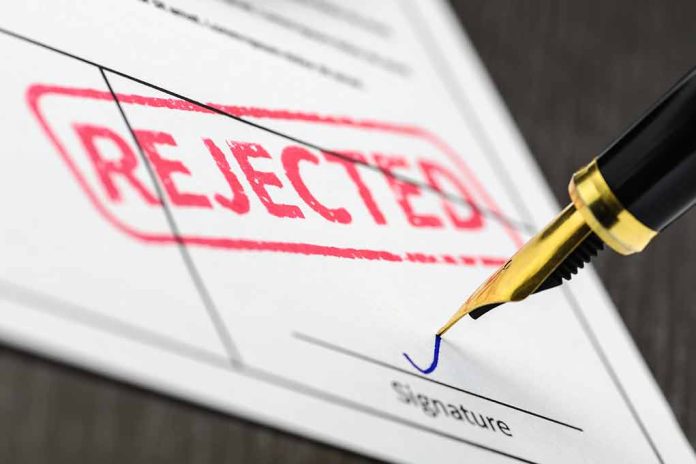
Coca-Cola finds itself once again at the center of controversy, now dubbed “Woka-Cola” for championing transgender inclusivity in women’s sports, igniting the ire of conservative voices nationwide.
At a Glance
- Coca-Cola criticized for supporting transgender athletes, earning the “Woka-Cola” label.
- Mobile billboard campaign targets Coca-Cola’s corporate activism.
- Tension arises over progressive corporate policies and traditional values.
- Critics demand a reassessment of Coca-Cola’s business priorities.
Corporate Activism Over Traditional Values?
Critics accuse Coca-Cola of placing ideology above business with its stance on transgender athletes in women’s sports. The company’s ties with the Centre for Sport and Human Rights has heightened frustrations among those who argue these policies misalign with longstanding consumer values. As one of America’s most iconic brands, Coca-Cola’s involvement in socio-political debates raises questions about prioritizing inclusivity over the core tenets of their business.
Consumers’ Research intensified this debate with a mobile billboard at Coca-Cola’s Atlanta headquarters, broadcasting allegations that the company prioritizes “woke politics” over consumer interests. This pointed campaign starkly illustrates the larger friction between progressive policies and traditional values, leading many to question if the company understands its audience’s sentiments.
https://t.co/jEq7rFp04I
Coca-Cola faces criticism for its support of transgender athletes and diversity initiatives, leading to a campaign branding it “Woka-Cola.” Consumers’ Research highlights the company's alignment with leftist agendas, urging it to prioritize consumer…— The America One News (@am1_news) February 11, 2025
Inclusivity and Corporate Sponsorship
As the 2024 Paris Summer Games approach, featuring gender parity for the first time, brands are shifting their campaigns towards inclusivity with women athletes taking center stage. Companies like Powerade and Reese’s are launching ads exclusively with female athletes. Despite this progress, a whopping 90% of sports sponsorships favor male athletes, highlighting a glaring gap in investment. The shifting focus encapsulates the growing narrative around inclusivity in sports sponsorships.
“Every one of those achievements we should celebrate, we shouldn’t allow that celebration to stand in the way of continued progress” – Christine Guilfoyle
The saga doesn’t end with sports. Fashion and cosmetic brands, recognizing a dominant female consumer base, increasingly invest in women’s sports by offering more opportunities and gaining more recognition, emphasizing the compelling stories of women athletes. While the showcase of physicality and grit continues to redefine the narrative of women’s sports, the debate over transgender inclusivity in these domains remains contentious.
A Broader Discourse
President Trump further inflamed tensions by signing an executive order to keep transgender athletes out of women’s sports. Critics argue this as an affront to transgender rights, while supporters view it as essential to preserve traditional women’s sports. As the dialogue expands, Coca-Cola’s corporate activism brings the wider debate into sharper focus.
Corporate America’s increasing involvement in socio-political issues signals a broader questioning of the balance between business and activism. With Coca-Cola’s move reverberating loudly across media platforms, it prompts a pivotal question: should companies weigh into political arenas, or should they remain apolitical entities?






















